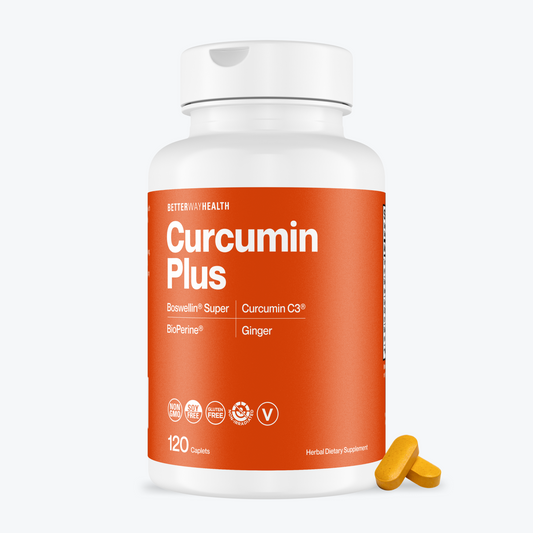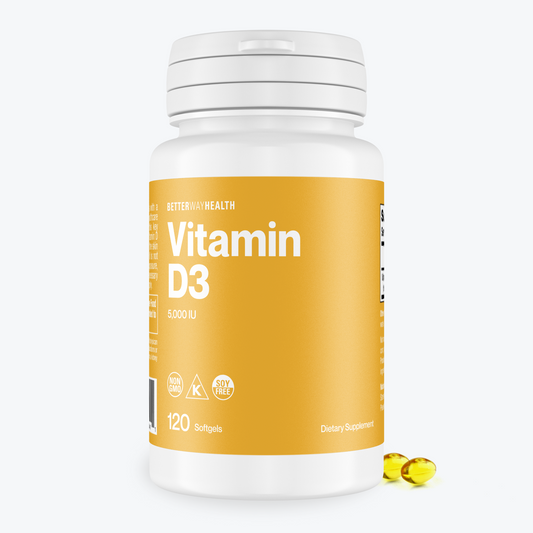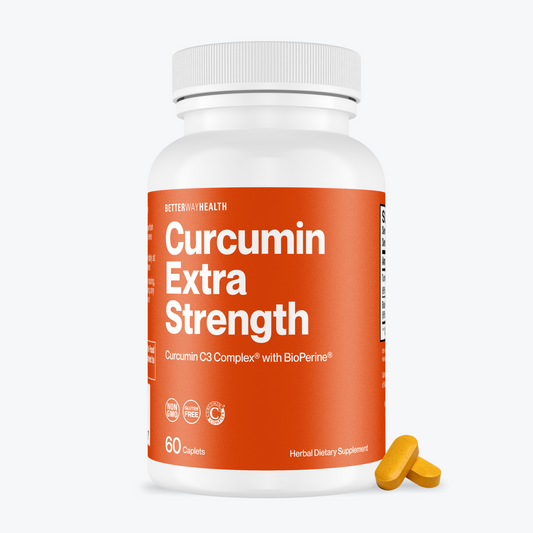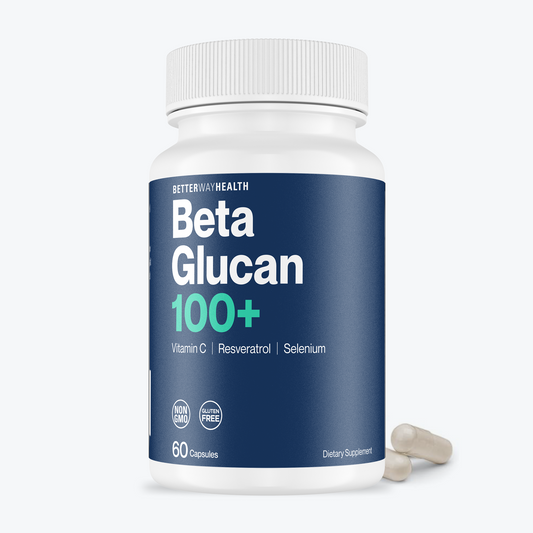Worst Food Ingredients for Your Immune System

Added Sugars and Your Immune System
Consuming excessive amounts of added sugars can negatively impact your overall health, including the immune system. A diet high in sugar may lead to a heightened risk of certain autoimmune disorders and impede the body's aptitude for combating illnesses.
Due to this, people who suffer from diabetes could experience longer periods of elevated blood sugar levels.
This can lead to insulin resistance, which occurs when the cells within the muscles, liver, and fat do not respond positively to insulin and are unable to use the glucose from the blood to provide energy. (1)

The Link Between Sugar Consumption and Inflammation
Sugar is known to trigger an inflammatory response in the body, which can weaken your immune function. When you consume too much added sugar, it leads to a spike in insulin levels that causes inflammation throughout your body.
This chronic inflammation not only contributes to various health issues like obesity, cholesterol, heart disease, and diabetes but also impairs your immune response. 2
Tip: To reduce inflammation caused by added sugars, try incorporating more anti-inflammatory foods into your diet such as fruits (berries), vegetables (leafy greens), nuts (almonds), seeds (chia seeds), or spices (turmeric).
How Excess Sugar Intake Affects White Blood Cells
Your white blood cells play a crucial role in protecting you from harmful pathogens by attacking bacteria and viruses that enter your system. Consuming excessive amounts of added sugars can have a negative impact on the performance of white blood cells.
According to a study published in The American Journal of Clinical Nutrition, high glucose levels inhibit the effectiveness of white blood cells in fighting off infections, making you more susceptible to illnesses like the common cold and other viral infections. (3)
Tip: To support your immune system, try cutting back on added sugars by consuming natural sugar sources such as fruits or opting for healthier alternatives like honey or maple syrup in moderation.
By being mindful of your sugar intake and incorporating more nutrient-dense foods into your daily meals, you can help strengthen your body's defenses against harmful pathogens and reduce the risk of chronic diseases linked to inflammation. Excess sugar consumption can have a detrimental effect on your immune system, so it is important to be aware of the amount you are consuming.
As an alternative, incorporating omega-3 sources into your diet may help promote healthier immunity levels. (3.1)
Suggested reading: The proven benefits of beta glucan
Fried Foods and Their Impact on Immunity
Consuming fried foods can lead to inflammation, thus diminishing the effectiveness of your immune system. By reducing fried food consumption and incorporating more omega-3-rich foods into your diet, you can promote better overall health and improved immune function. (4)
Common Types of Unhealthy Fats Found in Fried Foods
Fried foods typically contain large quantities of unhealthy fats, such as saturated and trans fats derived from animal products like butter, lard, or fatty cuts of meat.
Frequent intake of trans fats is associated with heart disease, diabetes, inflammation, and chronic disease.
Trans fats are artificially created by adding hydrogen to liquid vegetable oils, making them solid at room temperature.
Saturated fats are commonly found in fast food items like burgers, fried chicken, or bacon.
Trans fats are often present in commercially prepared baked goods like doughnuts or pastries.
Omega-3 Sources for a Healthy Diet
Incorporating omega-3 fatty acids into your diet is essential for maintaining good health and supporting proper immune function. (5) Omega-3s can decrease inflammation throughout the body, as well as support brain development and cognitive functioning. Some excellent sources of omega-3 include:
Boost your immune system by ditching fried foods high in unhealthy fats. Incorporate omega-3-rich foods for better health and reduced inflammation.

Fast Food's Negative Effects on Immune Health
Regularly consuming fast food not only leads to various negative health outcomes but also harms your immune system. (6) Fast food typically contains chemicals, corn syrup, salt, and artificial sweeteners that may interfere with proper immune function.
Let’s take a look at various bad components commonly found in fast food and how to make better decisions when dining out.
Harmful Ingredients Commonly Found in Fast Food Items
Chemicals: Many fast-food chains use additives and preservatives to extend the shelf life of their products. These chemicals can disrupt your body's natural balance and weaken your immune response. (7)
Corn Syrup: High-fructose corn syrup is a common ingredient in sodas and other sugary beverages served at fast-food restaurants.
Excess Salt: Fast foods are often high in sodium content, which can lead to increased blood pressure levels as well as fluid retention within our bodies, thus causing strain upon vital organs such as the kidneys, heart, and liver.
Artificial Sweeteners: Some low-calorie or sugar-free options available at these establishments contain artificial sweeteners like aspartame, saccharin, and sucralose, all of which are known contributors to poor gut microbiome health, thereby affecting one's ability to ward off infections effectively. (8)
Tips for Making Healthier Choices When Eating Out
While it's best to limit fast food consumption, there are times when eating out is unavoidable. Here are some tips for choosing the best foods when visiting restaurants:
Choose grilled options: Opt for grilled chicken or fish instead of fried items to reduce your intake of unhealthy fats and calories.
Select whole grains: If available, try to avoid white flour by choosing whole-grain bread or wraps over white bread to increase your fiber intake and support a healthy gut.
Load up on veggies: Add extra vegetables like lettuce, tomatoes, onions, and peppers to sandwiches, burgers, and tacos to enhance both flavor and nutritional value.
Watch portion sizes: Fast-food servings tend to be larger than necessary, leading to excessive calorie consumption. Try sharing a meal with someone else or ordering smaller portions whenever possible.
Limit sugary drinks: Instead of soda, fruit juices, or sweetened beverages, opt for water or unsweetened tea to keep added sugar intake in check and maintain proper hydration.
By being aware of the harmful ingredients in fast foods and following these tips, you can enjoy a more nutritious meal without compromising your body's defenses against illness.

Refined Carbohydrates as an Immune System Disruptor
Refined carbs are grains that have been fully stripped of nutrients, fiber, and bran. Consuming refined carbohydrates like white bread and pasta can disturb the balance of gut bacteria, thus compromising immunity.
Choosing whole grains over processed options will help support a healthy gut environment crucial for optimal immunity levels. (9)
Understanding How Refined Carbs Affect Gut Bacteria Balance
Due to their stripped nature, refined carbohydrates are easier to digest but less beneficial for our health. Refined carbs potentially lead to the increased production of free radicals and inflammatory proteins.
When consumed in large amounts, these simple carbs can lead to imbalances in the gut bacteria, also known as dysbiosis. (10) This imbalance may result in inflammation and reduced immune function, making it harder for your body to fight off infections and maintain overall health.
Examples of Nutritious Alternatives Containing Complex Carbohydrates
To promote a healthier gut environment and boost your immune system, consider incorporating more complex carbohydrates into your diet. These nutrient-rich alternatives provide essential vitamins, minerals, and fiber that support proper digestion and immune function. Some examples include:
Whole grains: Brown rice, quinoa, barley, oats (11)
Fruits: Apples with the skin on (pectin is found primarily within apple skins), berries (high antioxidant content), bananas (rich source of prebiotic fibers)
Veggies: Leafy greens like spinach & kale, sweet potatoes (high in beta-carotene), and cruciferous vegetables such as broccoli & cauliflower
Legumes: Lentils, chickpeas, black beans, kidney beans
By replacing refined carbohydrates with these healthier options, you can support a balanced gut microbiome and improve your immune response. Remember that moderation is key when it comes to any food group—even complex carbs should be consumed within recommended daily amounts for optimal health benefits.
Deep Dive: Prebiotics vs Probiotics: What They Are and Why They Matter
Excessive Alcohol Consumption's Effect on Your Body's Defenses
Drinking alcohol excessively is known to have adverse effects on one's overall well-being; it directly impairs the functionality of our body's defense mechanism against harmful pathogens by suppressing its response capabilities. (12)
Moderation is key here so as not to compromise your immune system.
The Impact of Alcohol on White Blood Cell Production
Excessive alcohol consumption can lead to a decrease in the production and function of white blood cells, which are essential for maintaining a healthy immune response. (13) White blood cells, also known as leukocytes, play a crucial role in identifying and eliminating foreign substances such as bacteria, viruses, and other harmful invaders.
When their numbers or effectiveness are reduced due to high levels of alcohol intake, the body becomes more susceptible to infections and illnesses.
Artificial Sweeteners and Immune Health
Artificial sweeteners provide a strong sweetening flavor that is free of calories; however, they are synthetic and can disrupt the gut microbiome. (14)
It's essential to be mindful of these additives when choosing low-calorie or sugar-free products.
Suggested Reading: 5 Easy Tips to Prevent a Waning Immune System
Common Types of Artificial Sweeteners and Their Potential Effects
There are several types of artificial sweeteners available on the market, each with its own potential effects on your immune health:
Aspartame: Found in many diet sodas and sugar-free candies, aspartame has been linked to an increased risk of allergic reactions due to its impact on the body's histamine production. This can lead to inflammation that weakens your immune response. (15)
Sucralose: Often used in baked goods and beverages, sucralose may alter gut bacteria balance by reducing beneficial bacteria levels. This disruption can potentially compromise your immune function.
Acesulfame potassium (Ace-K): Commonly found in soda, candies, and processed foods, Ace-K has been shown to cause imbalances within the gut microbiome similar to those caused by sucralose. (16)
Saccharin: Although considered safe for consumption by most people, saccharin may still have negative impacts on some individuals' gut health if consumed excessively over time.
Natural Alternatives for Satisfying Your Sweet Tooth
If you're looking for healthier ways to satisfy your cravings without compromising a healthy lifestyle, consider trying these natural alternatives:
Stevia: Derived from the leaves of the Stevia rebaudiana plant, stevia is a natural sweetener that has minimal impact on blood sugar levels and does not appear to negatively affect gut health. (17)
Erythritol: A sugar alcohol found in some fruits and fermented foods, erythritol is low in calories and doesn't seem to disrupt gut bacteria balance. However, it's essential to consume it in moderation as excessive intake may cause digestive discomfort.
Xylitol: Another sugar alcohol derived from plants like birch trees or corn cobs, xylitol can be used as a sweetener without causing significant changes to your gut microbiome. Store xylitol in a place where pets can't access it, as they could become ill if they consume too much.
Honey: While honey still contains sugars, its natural antibacterial properties make it a healthier alternative when consumed moderately. Plus, opting for raw or locally-sourced honey may provide additional immune-boosting benefits due to its pollen content.

Processed Meats and Their Impact on Immunity
Processed meat is high in saturated fat, which could contribute to immune system dysfunction and systemic inflammation. (18)
Common processed and charred meats contain advanced glycation end products (AGEs). AGEs refer to groups of molecules that are formed when sugars react with fats or proteins in high-temperature cooking.
Healthier Protein Options Instead of Processed Meats
Fish: Rich in omega-3 fatty acids, which help reduce inflammation; try incorporating salmon, mackerel, or sardines into your diet regularly.
Poultry: Chicken or turkey are lean sources of protein with less saturated fat than red meat; opt for skinless varieties whenever possible.
Lentils & Beans: Plant-based proteins such as lentils, chickpeas, and black beans provide a great alternative to meat while also being high in fiber and other essential nutrients.
Eggs: A versatile protein source that can be prepared in various ways; choose organic or free-range eggs for higher nutrient content.
Nuts & Seeds: Almonds, walnuts, chia seeds, and flaxseeds are all excellent sources of healthy fats and proteins that support immune health.
Rather than processed meats, aim to incorporate lean proteins like fish abundant in omega-3s, eggs, and plant sources into your diet to maintain a strong immune system.
Remember to consult with a healthcare professional before making significant changes to your diet or supplement regimen.
Final Dietary Tips for a Healthy Immune System
In addition to making sensible decisions when eating out as well as being mindful of the type of foods you consume, follow our dietary tips below:
Eat More Whole Foods
Fruits, vegetables, whole grains, lean proteins, legumes, nuts, and seeds provide essential nutrients required for maintaining strong immunity levels without added risks associated with unhealthy ingredients such as artificial sweeteners and high-fructose corn syrup.
Choose Healthy Cooking Methods
Rather than frying, opt for baking, grilling, or steaming your food to reduce the need for unhealthy fats.
Read Food Labels
Always check the ingredient list on packaged foods and look out for hydrogenated oils, which indicate the presence of trans fats. Opt for products with healthier fat sources like olive oil or avocado oil instead.
Consume Omega-3 Rich Foods
Incorporate more omega-3-rich foods, such as fatty fish (salmon, mackerel), flaxseeds, and walnuts into your diet to promote a healthy immune response.
Making these simple changes can help you avoid harmful trans fats while supporting optimal immune function and overall health.
Key Takeaway
Trans fats found in baked goods and fast food can compromise the immune system's functionality, increasing vulnerability to foreign invaders.
To reduce trans fat consumption and boost immunity, choose healthier cooking oils, limit processed foods, eat healthy fat sources like nuts and seeds, and avoid fried fast food.
Natural Supplements for Your Immune System
In addition to healthy eating, using quality natural supplements can work to strengthen your immunity. Including foods and ingredients that are rich in nutrients (such as vitamin D, vitamin C, and iron), Beta Glucan can help by activating immune cells in your body.
Beta Glucan is a natural fiber-like molecule that works by activating many cells in your immune system. It has the ability to strengthen the immune system, make it smarter, and increase overall wellness.
If you're looking for additional support in boosting your immune system naturally with Beta Glucan, view our product range.
Conclusion
Having a weakened immune system can make one more prone to becoming ill and catching infections. By making mindful food choices, you can help bolster your body's natural defenses and enhance overall health.
Avoiding added sugars, fried foods, fast food items, refined carbohydrates, alcohol consumption, artificial sweeteners, processed meats, and trans fats while incorporating high-fiber foods and healthy sources of omega-3s are all ways to boost immunity. Get your monthly supply of Beta Glucan with our easy subscribe and save products.
Find Out How Our Beta Glucan Compares to Other Brands:
Better Way Health Beta Glucan vs. Wonder Laboratories
Better Way Health Beta Glucan vs. Priority One
Better Way Health Beta Glucan vs. The Vitamin Shoppe
Still have questions?
Our ACES Team is always there to help.









